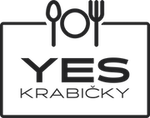Hello vs. diet food. What to watch out for when losing weight?
Are you starting to lose weight and don't want to stick to a very strict diet? Do you want to eat "simply healthy" and not check every bite? There's no harm in this approach as long as you also watch out for hidden calories. There are foods that we can confidently call "healthy", but their caloric value can throw a pitchfork at us when it comes to losing weight.
What is the difference between healthy food and diet food?
- Dietary = foods that are tailored to a specific dietary regimen or goal (eg, weight loss, disease treatment, or achieving optimal health). Diet food often focuses on limiting calories, sugar or salt.
- Healthy = foods that provide sufficient nutritional value and benefits for overall health. This includes foods like fruits, vegetables, whole grains, lean protein and healthy fats.
But it's not that simple. This basic distinction can be confusing or insufficient for many people. Some foods that are considered healthy can be surprisingly rich in calories, which then has an adverse effect on weight reduction.
Example: Avocado bread or oatmeal have many health benefits, but consuming too much can quickly backfire in unwanted weight gain.
So is it more important to focus on the quality of food or on its caloric value?

Losing weight to gain weight
One of the main factors that guide us in choosing food is awareness of what is objectively considered healthy. Let's keep the avocado as an example. Although avocados are a rich source of healthy fats, fiber and other nutrients, 1 serving of avocado bread, which is becoming increasingly popular, can contain over 500 calories.
The same applies to oatmeal, which is often referred to as a fiber-rich breakfast that helps maintain a feeling of fullness. Yes, but if you prepare a bowl of oatmeal instead of a bowl and add other ingredients to it, such as a large amount of fruit, nut butter, nuts, etc., the caloric value may increase significantly.
Which other foods are high in calories?
- Nuts, seeds
- Whole wheat bread
- Coconut oil
- Bars (protein, RAW)
It's important to note that while these foods are nutrient-dense and can be part of a balanced diet, eating too much can lead to excess calorie intake and potential weight gain. Therefore, it is crucial to pay attention to adequate portions and at the same time to focus on the quality of the food.

Diet ≠ healthy
On the other hand, foods labeled as "diet" are often associated with low calorie content and easy weight loss. But don't be fooled. These foods go through a significant process of modification, which is again not quite ideal from a health point of view. They are often modified to contain less fat, sugar or carbohydrates. Although diet foods tend to be low-calorie, they often lack important nutrients and, conversely, may contain various additives that are not beneficial for the body.
Quality first
Instead of focusing only on the caloric value of food, we should look at the total content of nutrients that our body needs to function optimally. And above all. We should choose quality foods.
What should definitely be included in the menu?
- healthy fats
- carbohydrates
- proteins
- fiber
- vitamins and minerals
Think of food as fuel for your body. If you only focus on whether a food is "healthy" or "diet," you can easily overlook what your body needs and go to an unwanted extreme. Each person has different nutritional requirements and prefers different tastes and textures of food. Therefore, it is crucial that we realize what really benefits us and what helps us achieve our fitness goals.

What to take from it?
It can be said that the difference between "healthy" and "dietary" is not always clear. It's important to keep in mind that even foods labeled as "healthy" can be high in calories and lead to weight gain. Conversely, foods labeled as "diet" may not always be the best choice for our health and may contain undesirable ingredients. The most important thing is to perceive the diet as a total package, which should meet the needs of our body.







